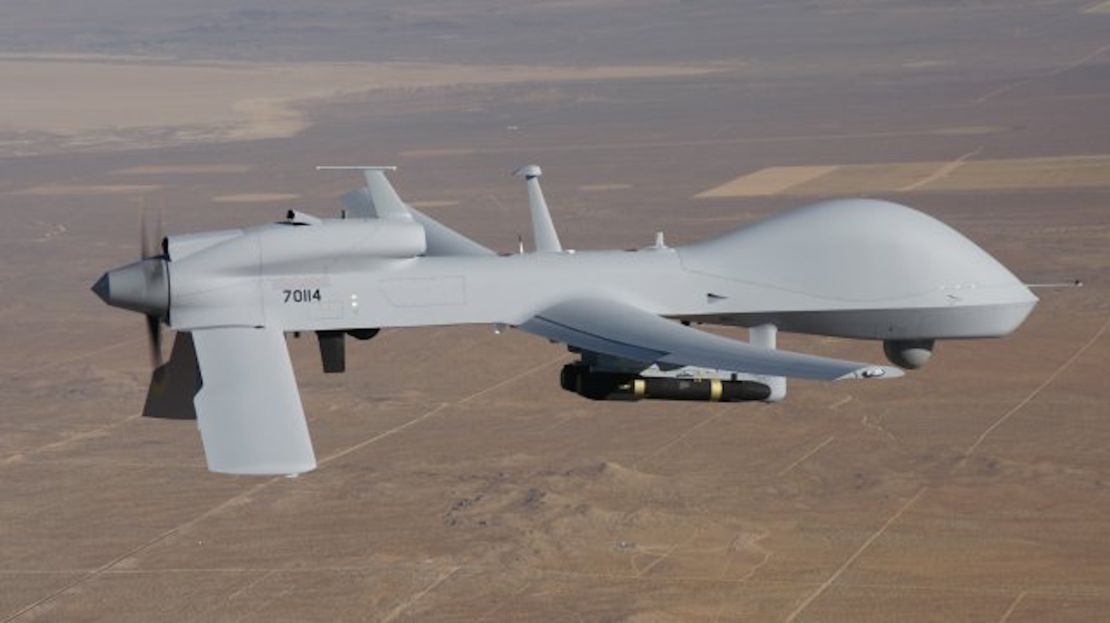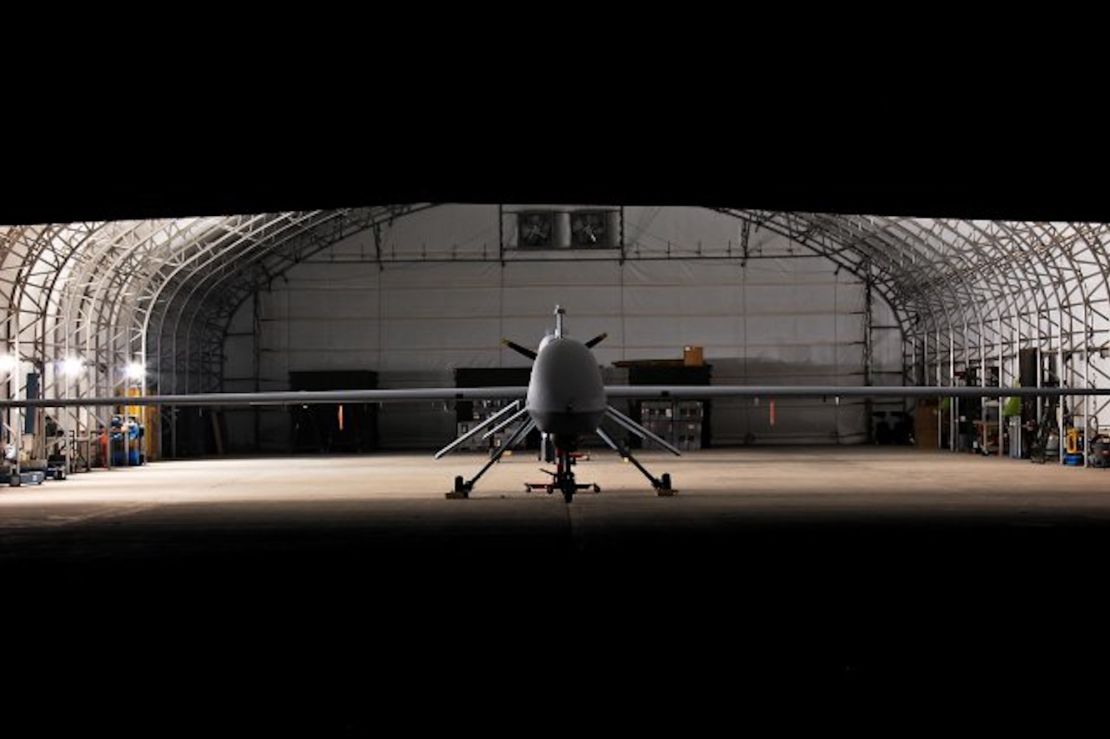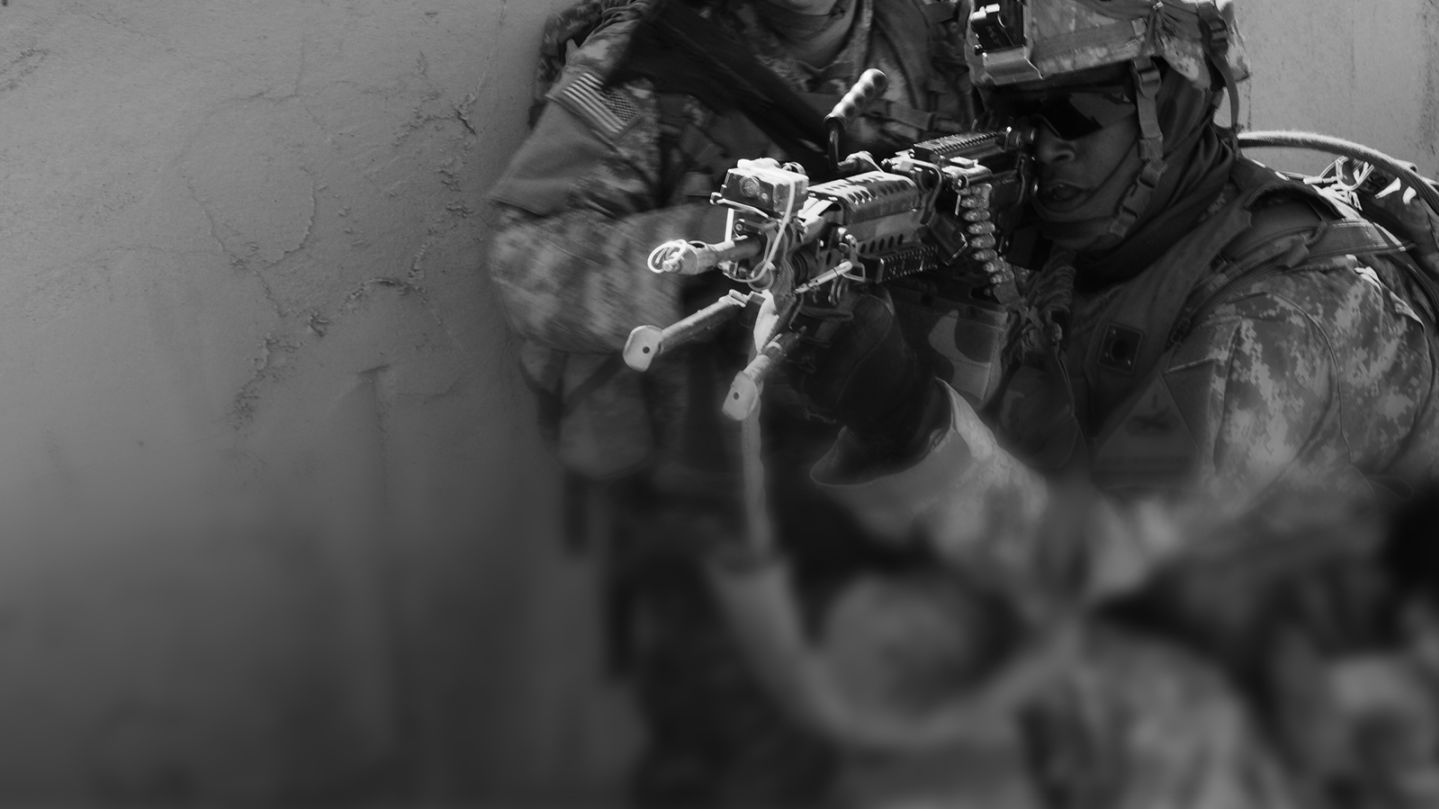Story highlights
The Gray Eagle Unmanned Aerial System is equipped with hellfire drones
This is the first time its deployment has been made public
The United States will permanently station attack drones in South Korea, the US military announced.
The announcement came a week after North Korea shot off four ballistic missiles into the Sea of Japan, also known as the East Sea, and while the US and South Korea are conducting their annual joint military exercises.
“The stationing of this company, which will be assigned to the 2nd Combat Aviation Brigade of the 2nd Infantry Division, directly supports the US Army’s strategic plan to add one Gray Eagle company to each division in the Army,” USFK said in a news release.
“The UAS adds significant intelligence, surveillance and reconnaissance capability to US Forces Korea and our ROK (Republic of Korea) partners.”

The Gray Eagle Unmanned Aerial System is capable of staying in the air for 24 hours and is equipped with Hellfire missiles, according to a profile on the US Army website.
The system has upgraded reconnaissance and surveillance technology over that of the Predator drones, which the US military has used widely in operations around the globe, said Corey Wallace of the Graduate School of East Asian Studies at Freie Universität Berlin.
It can also integrate with Apache helicopters, which could help when it comes to avoiding bad weather on the Korean Peninsula. The US military began rotating 24 AH-64D Apaches into South Korea earlier this year.
“The US and its regional partners see the importance of demonstrating that they also have the upper hand in conventional deterrence and readiness, and not just as a reaction to a full DPRK (Democratic Republic of Korea) attack,” Wallace told CNN in an email.
Trouble on the Peninsula
The move is likely a show of force in reaction to increased provocations from North Korea, said Daniel Pinkston, a professor at Troy University in Seoul.
Pyongyang has conducted a series of test missile launches in recent months, a worrying development for the US and its allies in the region because it means that North Korea is likely refining its missile technology.
“If North Korea thought they could continue their accelerated pace of weapons testing and deployment without a response, they certainly were wrong,” Pinkston told CNN. “(With) the recent North Korean behavior, and with the Foal Eagle exercise going on, I think it’s a good time (to deploy).”

This is the first time US forces have made the news of the drone movement public, according to USFK spokesman Christopher Bush.
And that’s no accident, said Yvonne Chiu, a professor at Hong Kong University.
The US wants to make sure that Pyongyang – and to a lesser extent Beijing – has no doubts that Washington is a major player in Asia.
“The US wants to, and I think it needs to, be seen as responsive to developments in the region,” Chiu told CNN. “And you want North Korea to know that.”
Park out
Though the timing is likely a reaction to North Korea’s missile launches and threatening posture, it also came amid political upheaval in South Korea.
The country’s Constitutional Court upheld the impeachment of now former President Park Geun-hye Friday, who was ousted in the aftermath of a corruption scandal.
Park took a hard line when it came to dealing with Pyongyang, but the man currently leading in opinion polls for the race to succeed her – Liberal candidate Moon Jae-in – has historically favored improving relations between the two.
“It could be that the announcement is made to ensure a future government doesn’t walk it back – like with the THAAD acceleration, there may be some concerns that a future left-leaning government might be less willing to face the DPRK directly,” said Wallace.
THAAD is an acronym for the Terminal High Altitude Area Defense, a US-built defensive missile system that Park’s government agreed to deploy in South Korea.
At a rally celebrating the impeachment ruling Saturday, balloons could be seen reading “No THAAD! Yes peace!”
The THAAD element
THAAD is designed to take down incoming missiles from North Korea, and the first pieces of it arrived in South Korea last week.
But its deployment is highly controversial despite its defensive nature.
RELATED: How would missile defense systems work against North Korea?
South Koreans are split in their support for THAAD.
Some see it as way to protect themselves from provocations by North Korea, though it’s not a foolproof system. Others are angry that THAAD’s deployment has damaged diplomatic relations between Seoul and Beijing.
China opposes THAAD because it sees it as a threat to its own security interests. Among other things, Beijing worries that THAAD’s advanced radar system could be used for surveillance purposes.
Many in the Chinese foreign policy establishment see THAAD as just as big a threat to China as Pyongyang’s nuclear program, according to professor John Delury of Yonsei University.
Though THAAD is just a defensive system, the radar and surveillance capabilities worry the Chinese. Now they’ll have to worry about attack drones parked in their backyard, too.
“The US has a reputation – at least in China – for not being particularly strong or interested or really wanting to or have the ability to defend its interests,” says Chiu. “So Beijing is going to react badly to this.”
CNN’s Paula Hancocks and James Griffiths contributed to this report




